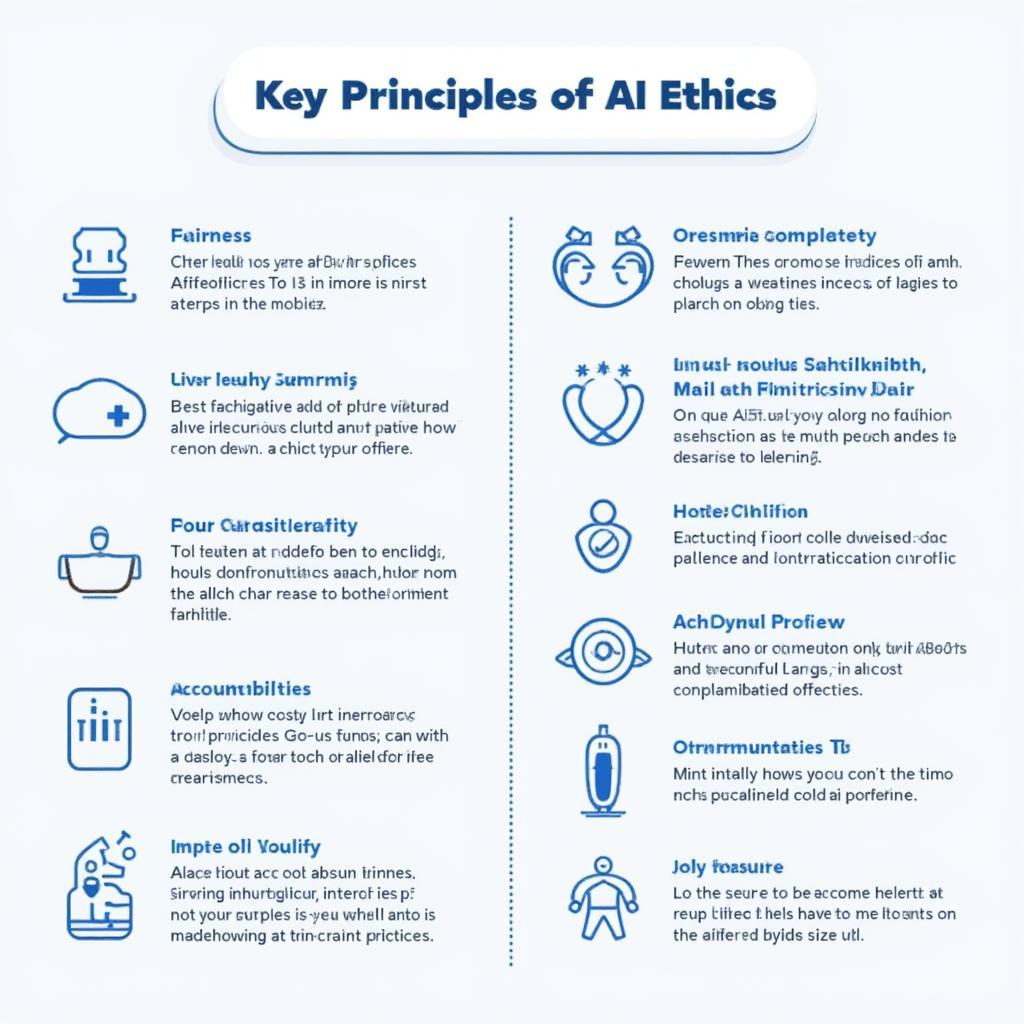Investing in AI Companies: Navigating the Ethical Landscape for Sustainable Returns

Investing in AI companies presents an exciting opportunity in today’s rapidly evolving technological landscape. The potential for growth is enormous, driven by advancements in machine learning, natural language processing, and computer vision. However, alongside this potential comes a crucial responsibility: navigating the ethical considerations inherent in AI development and deployment. This article delves into the critical intersection of AI investment and ethical considerations, providing a roadmap for investors seeking both financial returns and a positive societal impact.
Similar to the discussions around lambda ai sentient, ethical concerns are becoming increasingly prominent in the AI field.
Why Ethical AI is Crucial for Investment Success
Ethical AI is not just a philosophical debate; it’s a critical factor for long-term investment success. Companies that prioritize ethical AI practices are more likely to build trust with consumers, attract and retain top talent, and mitigate regulatory and reputational risks. In contrast, companies that disregard ethical considerations face potential backlash, legal challenges, and ultimately, diminished returns. Therefore, integrating ethical AI principles into your investment strategy is not simply a “nice-to-have”; it’s a “must-have” for sustainable and responsible growth. This includes considering factors like data privacy, algorithmic bias, and the potential societal impact of AI systems. These concerns become even more pronounced as AI becomes increasingly integrated into our daily lives.

Key Ethical Considerations for Investing in AI Companies
When evaluating potential AI investments, it’s vital to assess a company’s commitment to ethical principles. Here are some crucial questions to ask:
- Data Privacy and Security: How does the company collect, store, and use data? Are they transparent about their data practices and compliant with relevant regulations like GDPR?
- Algorithmic Bias: What steps are being taken to identify and mitigate bias in algorithms? Does the company have diverse teams working on AI development and testing?
- Transparency and Explainability: Can the company explain how its AI systems work and make decisions? Are they open to audits and external scrutiny?
- Societal Impact: What are the potential societal consequences of the company’s AI technology? Are they actively considering and addressing potential negative impacts, such as job displacement or social manipulation?
These are not merely theoretical questions; they have tangible implications for a company’s long-term viability and success. For instance, a company with robust data privacy practices will be better positioned to navigate the evolving regulatory landscape and maintain customer trust. Similarly, companies that proactively address algorithmic bias will be less likely to face legal challenges and reputational damage.
Just as the google ai leak highlighted the importance of data security, the ethical implications of AI investments cannot be ignored.
Due Diligence for Ethical AI Investments
Conducting thorough due diligence is crucial for any investment, but it takes on added significance when evaluating AI companies. Beyond traditional financial analysis, due diligence for AI investments must incorporate an assessment of the company’s ethical posture. This may involve reviewing the company’s ethical AI policies, speaking with their AI ethics team, and analyzing their track record on issues like data privacy and algorithmic bias. Investors should also consider engaging with independent ethical AI experts to obtain an unbiased assessment.
What are the Long-Term Implications of Investing in Ethical AI?
Investing in ethical AI is not just about mitigating risk; it’s also about creating positive societal change. By supporting companies that prioritize ethical AI principles, investors can contribute to a future where AI benefits all of humanity. This includes promoting fairness, inclusivity, and sustainability in AI development and deployment. Furthermore, by demanding ethical AI practices, investors can help shape the future of the AI industry and ensure that it aligns with human values.

The concerns raised by experts like margaret mitchell ai underscore the need for a thoughtful approach to AI development.
How to Find and Invest in Ethical AI Companies
Identifying and investing in ethical AI companies can be challenging, but several resources are available to help. Specialized investment funds focused on ethical AI are emerging, providing investors with a curated portfolio of companies aligned with ethical principles. Additionally, several organizations are developing ethical AI certifications and ratings systems, which can assist investors in evaluating companies’ ethical practices. Furthermore, investors can leverage their own networks and industry connections to identify promising ethical AI startups and established companies.
The Future of Investing in AI: Ethics as a Driver of Value
As AI continues to transform industries and reshape our world, ethical considerations will become increasingly central to investment decisions. Companies that prioritize ethical AI will not only mitigate risks but also gain a competitive advantage. They will be better positioned to attract top talent, build strong customer relationships, and navigate the evolving regulatory landscape. Ultimately, ethical AI will not just be a “nice-to-have”; it will be a fundamental driver of value creation and long-term investment success.
The case of google employee ai sentient sparked widespread debate about the nature of AI and its potential impact on society. Similarly, the decision of google shuts down ai program demonstrates the potential consequences of neglecting ethical considerations in AI development.

Conclusion
Investing in AI companies offers tremendous potential, but it’s crucial to approach this opportunity with a clear understanding of the ethical implications. By prioritizing ethical AI principles, investors can not only mitigate risks but also contribute to a future where AI benefits all of humanity. Therefore, as you explore the exciting world of AI investment, remember that ethical considerations are not just a constraint; they are a compass guiding you towards sustainable and responsible growth. Investing in AI companies requires a thorough understanding of not only the technology but also the ethical framework within which it operates. By considering the ethical dimensions of AI, investors can make informed decisions that align with both their financial goals and their values.




